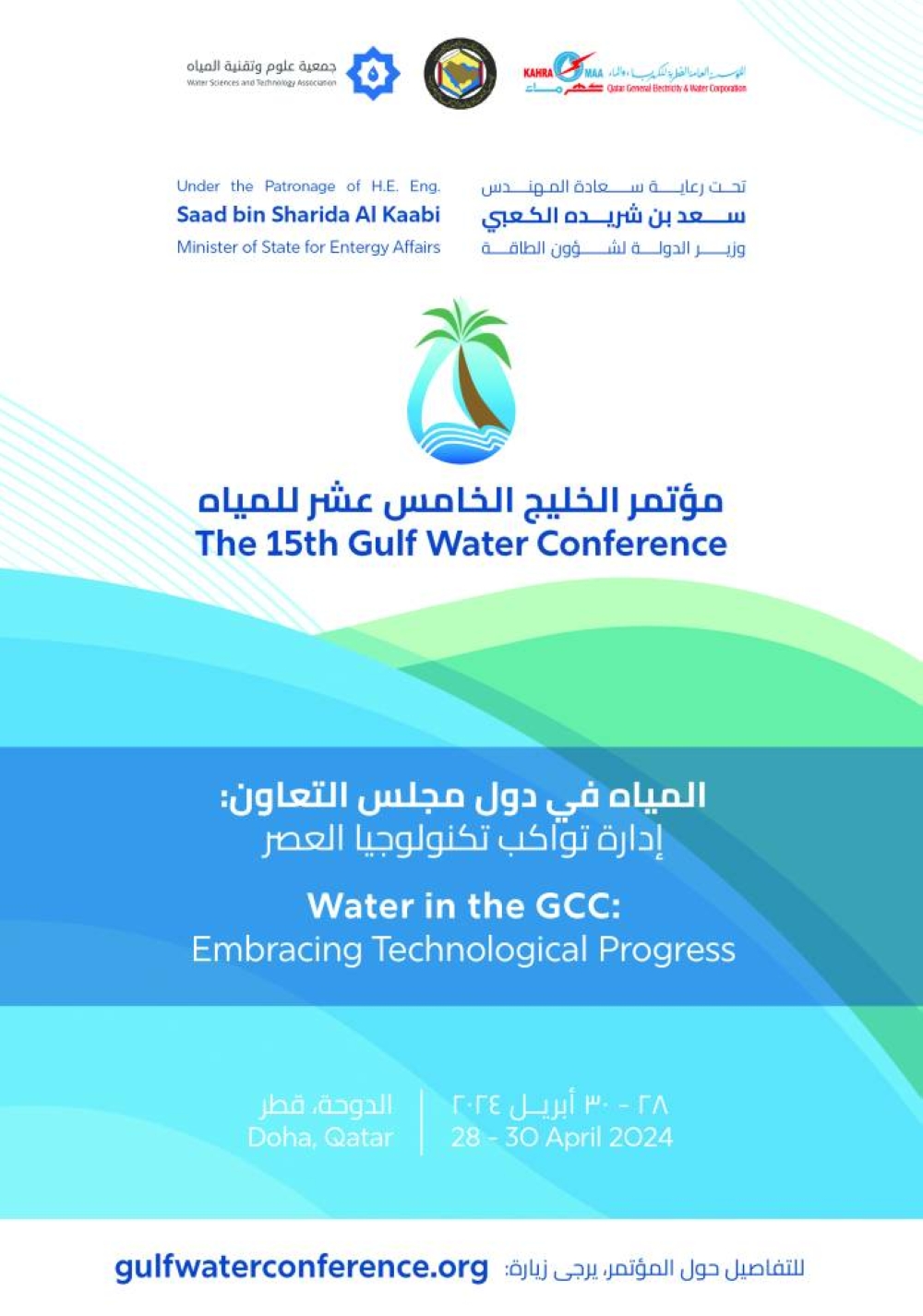The 15th Gulf Water Conference will be held in Doha from April 29-30 under the patronage of HE the Minister of State for Energy Affairs and Cabinet Member Saad bin Sherida al-Kaabi. To be organised by the Qatar General Electricity and Water Corporation (Kahramaa) in collaboration with the Water Science and Technology Association and Secretariat General of the Gulf Co-operation Council, the conference will feature 20 speakers and 50 research papers.
According to a Kahramaa statement, the conference will discuss topics such as the ways of reducing carbon emissions in the water sector of the GCC and the effective management of the municipal water sector in collaboration with the Arab Countries Water Utilities Association.
It will explore the prospects of water science and technology research in collaboration with the Unesco office in Cairo and the use of technology to bridge the data gap for the effective management of agricultural water in co-operation with the Food and Agriculture Organisation of the United Nations (FAO).
The sessions will also cover topics related to the privatisation of the water sector and regulatory aspects and will address water information systems for integrated water management in collaboration with the Unesco office in Doha while covering the study of antimicrobial resistance in municipal wastewater in co-operation with the United Nations Environment Programme.
Kahramaa president, engineer Issa bin Hilal al-Kuwari, said there are efforts to harness technology to improve the water sector and enhance the management of water resources. “With co-ordination, we can effectively implement these innovations. This conference is an invitation to share expertise and discuss the region’s latest technologies, benefits, and challenges,” al-Kuwari said.
He also stated that the conference welcomes all participants and invites fruitful discussions related to the future of the water sector and modern technology in the Gulf region. Prof Waleed al-Zubari, vice-president of the Water Science and Technology Association, head of the Scientific and Training Committee, and the dean of the Graduate Studies College at the Arabian Gulf University, said that the conference primarily aims to review the current and emerging technologies used in various water sectors, increase awareness of them and understand their advantages, challenge and limitations. “The participants will endeavour to present technological solutions applied in the region and internationally to address the challenges that face the water sector,” he said.
“The rapid developments in modern technologies in all aspects of water informatics, the current massive amount of data coming from all types of devices, the increasing capacity of computers, and the emergence of new technologies such as artificial intelligence, the Internet of Things, cloud analytics and the general digital transformation of the council’s states will revolutionise all sectors and the water sector system will be no exception,” he added.
The conference will address six main themes, which collectively focus on the integrated management of water resources, desalination sector management, surface water and groundwater management, sewage water management (treatment and reuse) as well as household water management and agricultural water management.
Three training courses will discuss the role of the salinity agriculture approach in sustaining agricultural production in the arid GCC countries, organised by the International Center for Biosaline Agriculture. The courses include also the design of sanitation safety plans.

